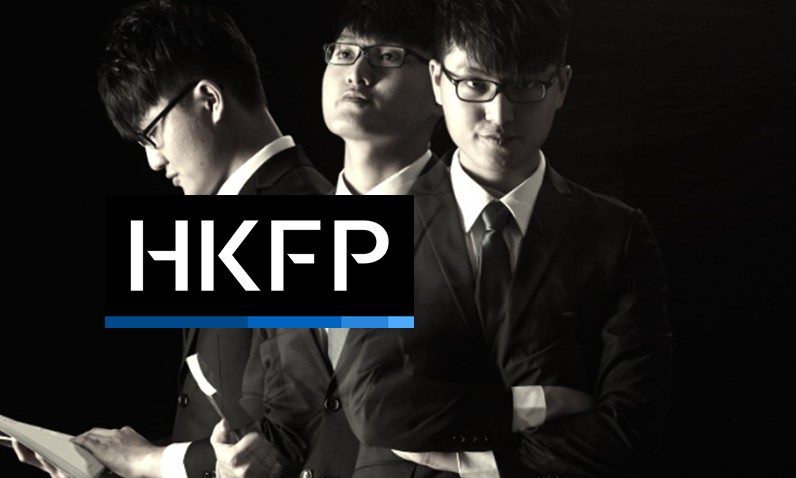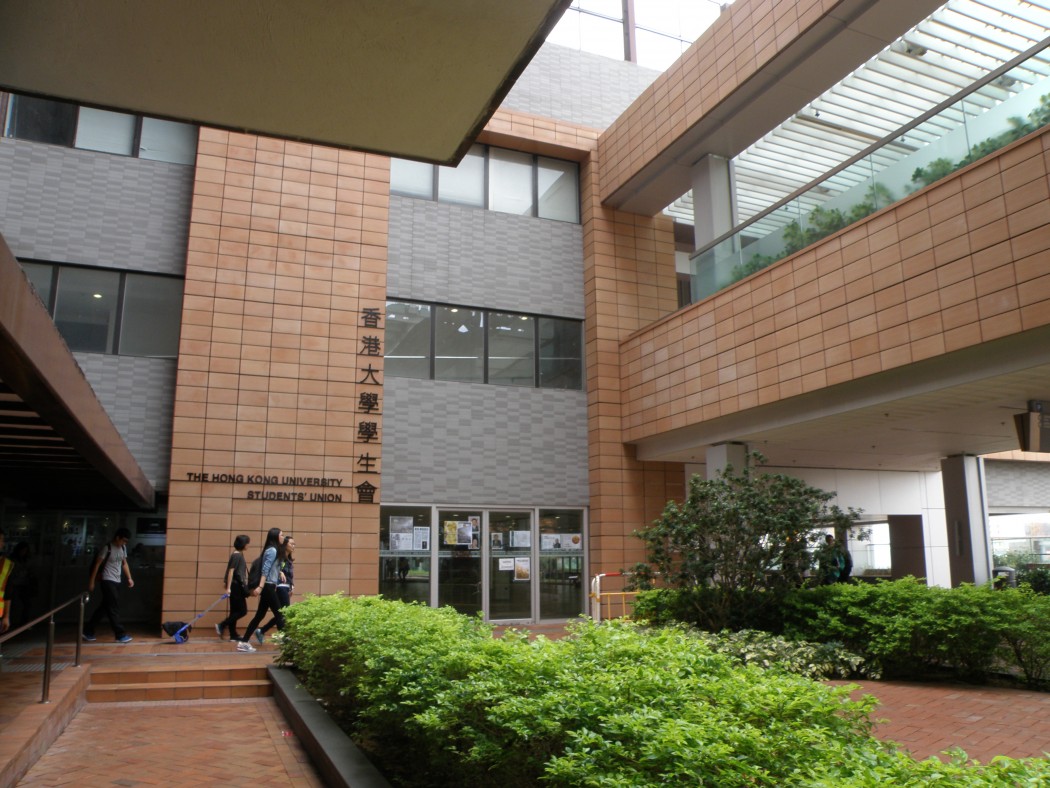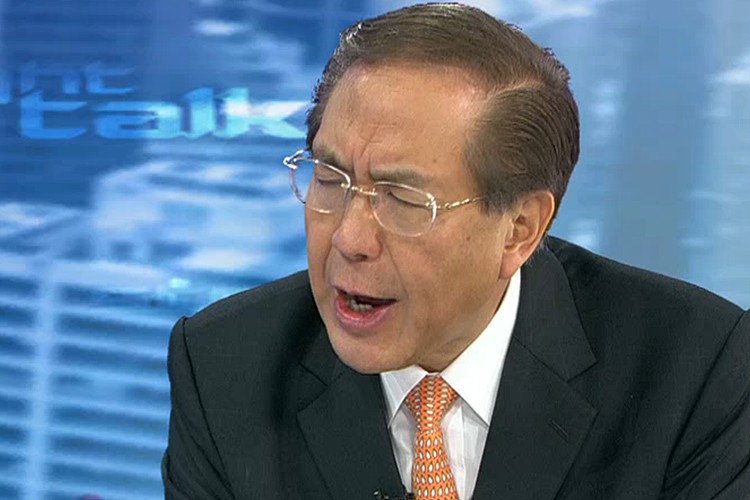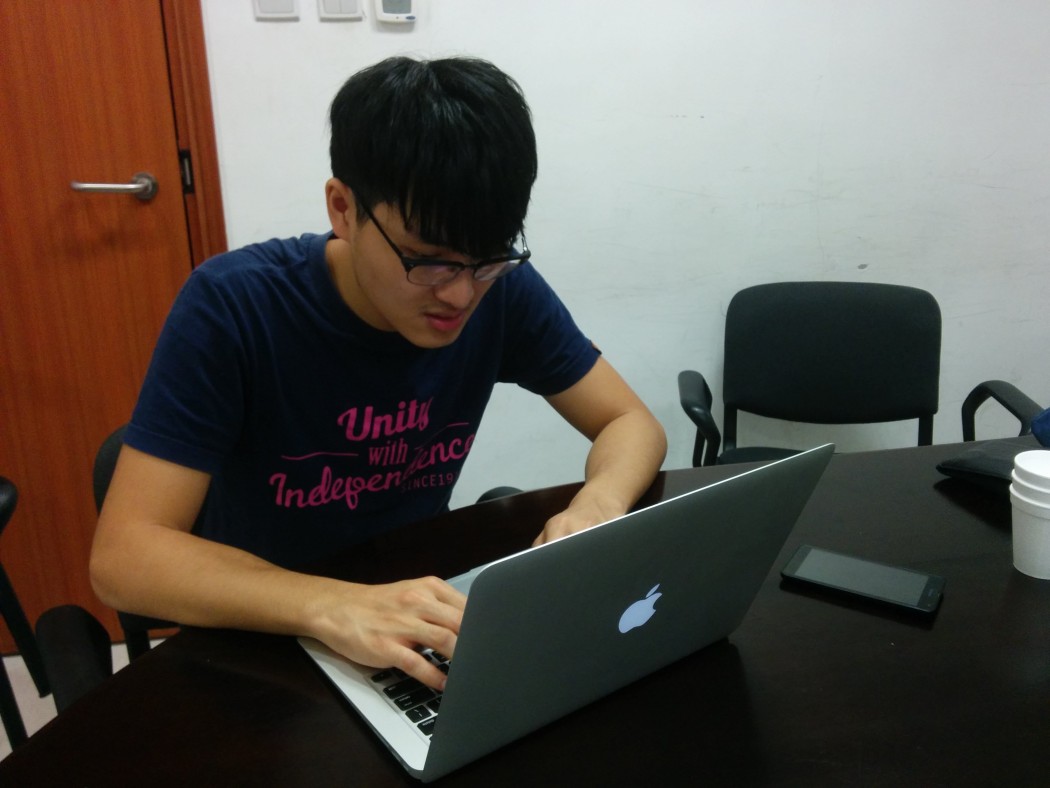
University of Hong Kong Student Union (HKUSU) president and student representative to HKU Council Billy Fung Jing-en spoke to HKFP about heading the Student Union, flaws in the University’s management, the HKU pro-vice-chancellor controversy, HKU pulling out of the Hong Kong Federation of Students (HKFS), the Occupy movement and more.

Fung made headlines when he breached the Council’s confidentiality rules by revealing Council members’ reasons for rejecting the appointment of liberal law scholar Johannes Chan Man-mun for the post of HKU’s pro-vice chancellor. He received mixed reactions from the public for the move and the Council voted to suspend him from future confidential meetings. Fung, 21, was elected president of the current cabinet of the Student Union in February this year.
HKFP: Have there been any mismatches between your expectations and the reality you’ve faced during your term as president of the HKU Student Union?
Fung: I ran for president to improve the Union by promoting Hong Kong politics through academic forums and to foster integration between local and non-local students. Our biggest achievement was the buddy program between local and non-local students. I had thought we could do more forums in English or provide interpretation for all but we couldn’t, and that fell short of my expectations. The buddy program should also be much larger in scale.
HKFP: To what extent does such a program really affect the wider issue of integration of a highly diverse student body? What about the representation of mainland and international students in the cabinet of the Union?
Fung: This was our first time and we had little resources. We hope that with the experience gained this year, the buddy program will be carried forward next year. Overall, we ensured that every mass email message, every poster and every Facebook post was bilingual, so that all students understood what we’re going to deliver and knew of upcoming events. Of course, we have to do much more. HKU students are HKU students, whether local or non-local, and we are here to serve them.
As for representation, all students are eligible to run for election. Maybe the next cabinet could try to communicate with different students who have same vision, whether local or non-local. But the next session will have its own autonomy and I cannot set a framework for their work, so I cannot comment too much.
HKFP: Any expectations for the next session of the student union?
Fung: I hope they will continue to foster integration between local and non-local students and keep working on university and current affairs.

HKFP: Any thoughts on HKU pulling out of the Hong Kong Federation of Students (HKFS) earlier this year?
Fung: During my election, I did not support the withdrawal of HKUSU from HKFS. I see the importance of an alliance among the student unions of different universities, and HKFS has long been working hard to improve various university affairs like application systems for loans and grants and matters concerning the managerial model in the universities. Even though I recognise its importance, I respect the students’ decision, which was made through a general vote, to quit the HKFS. Moreover, quitting the alliance doesn’t mean we have no further chances to cooperate. The cooperation has now become issue-based, for instance, we are cooperating and communicating with HKFS and unions of other universities regarding the issue of amendments to the HKU Ordinance.
HKFP: It’s been one year since the Occupy movement. What were you doing at that time?
Fung: I first came into contact with HKFS in June last year when there were discussions about the development plan for the northern new territories in Hong Kong. Later on, HKFS advocated a class boycott to advance Hong Kong’s democratic development. I tried to promote the class boycott and the importance of democratic development in Hong Kong within the university and outside, through activities like making leaflets and posters. During the class boycott, I helped coordinate the helpers in Tamar Park and I was also looking after and transporting materials.
The mass movement was sparked off by some students storming the square outside the Legislative Council (LegCo). I didn’t take part in that, but stayed outside and waited to show support for my friends. I was there when the police released tear gas to deter protesters from occupying. Later on, when the Occupy campaign became more established, I anticipated an open discussion between the government and HKFS. At that time, I would also often observe the police to try to predict their next movements.
After reading week [a week of holidays in the HKU calendar that occurs mid-semester] in mid-late October, I admit I went there less frequently, because I needed some time to think about how to improve the situation. There was also some academic pressure as I had many papers and exams. In late November last year, I participated in occupying Lung Wo Road as well. Anyway, to summarise, I assisted, observed and acted in a supporting role and as a participant before and during the Occupy campaign.
HKFP: You have come under fire for leaking the Council’s confidential discussions, with some saying you lack integrity and that no-one will want to employ you. Others however are complimenting you, some even comparing you to Edward Snowden. Thoughts?
Fung: I am grateful for the compliments – I can feel the support. But in the long term I’d prefer that they be more concerned about amending the HKU Ordinance and the choice of HKU Council chairman rather than complimenting me, because compliments cannot improve the situation. Anyone else in my position would have done the same, because it’s ridiculous that they can just hide behind confidentiality and speak without any cost. As for the question of my integrity, I think if we witness injustice or something ridiculous, keeping silent is immoral.
And Snowden has sacrificed more la! He cannot go back to his home country. He is much greater than me in that sense.

HKFP: Was the decision to disclose the HKU Council’s reasons for rejecting Chan an easy one for you or did you deliberate with yourself and other Union members?
Fung: The night before the council meeting, I had a discussion with my colleagues and some students from the university affairs committee about what we’d do if a decision was made on the basis of ridiculous reasons. We decided that we may have to disclose these reasons as a form of civil disobedience, to show our dissatisfaction and to protect the students’ right to know, even if it violated the convention of confidentiality.
I jotted down the reasons advanced by every Council member regarding their opinion during the meeting, so as to be able to deliver an accurate account of what they said. It was quite difficult for me as some of them are native English speakers, so I had to write very quickly. Because of the injunction I cannot comment any further on the whole issue. After HKU applied for it, they even sent out an email to all Council members to inform us about the injunction and tell us that we have to obey it.
I didn’t know the consequences of the leak at the beginning and if they would take disciplinary action. After consulting legal advisers I realised that they cannot expel me, which did come as a great relief to me.
HKFP: What are your plans for the remaining two months of your term as student union president?
Fung: We have two more forums, a high table dinner and a superpass function [a traditional HKU social event to wish fellow students success for upcoming examinations] coming up. We are also still concerned about the appointment of the new chairman of HKU Council and will keep up the monitoring.
According to the HKU Ordinance, the chancellor of the university is Chief Executive CY Leung and he can appoint nearly one third of HKU Council members, giving the government great potential influence on university affairs. We consider it an unhealthy situation for the development of the university. We are conducting a large-scale study of the managerial styles of different universities around the world and planning a deliberation day to advocate for concrete amendments to the HKU Ordinance.

HKFP: Why have two rounds of voting on Arthur Li Kwok-cheung as chairman when there seems to be a consensus already on how the student body feels about him?
Fung: Because student opinion should prevail. It must be demonstrated to the university and chancellor CY Leung that we don’t like Arthur Li, who will most probably become the new chairman of HKU Council. We have to clearly show our stance and the polling offers the lowest cost of participation to students. Maybe we can mobilise and motivate students to care more about this issue. Although the chancellor and Chief Executive often does exactly the opposite of what the general public wants, we still have to express our opinion as a whole.
HKFP: Do you think an amendment to the HKU Ordinance and Statutes in the future is a realistic possibility?
Fung: It will happen in the future. We need the approval of LegCo for amendments and the next LegCo election is in 2016. This could be an issue during the election. At this stage, I’m not sure if any of the proposed councillors will agree to amend it, but I still have faith in the amendments. The student unions of different universities are working together on it – we are cooperating with the student unions of Lingnan University, Chinese University, University of Science and Technology, Baptist University and Polytechnic University. We have to remember that to amend the HKU Ordinance is a long journey, but I believe it is in the foreseeable future.

HKFP: Apart from the automatic appointment of the Chief Executive as chancellor, what else about the management of HKU would you like to see changed?
Fung: The composition of the HKU Council, wherein most seats are not filled by students and employees of the university, is ridiculous and unreasonable, when they are the ones most affected. At the National Taiwan University (NTU), the student representation in their decision-making body is not less than 10 percent and further, every faculty has at least four representatives in the body. Compare this to HKU Council where only a third of the membership is made up of HKU academic and non-academic staff and students. You can see the difference in the weighting of opinions of the main stakeholders between HKU and NTU. Respect for the opinions of different stakeholders is expressed through the composition of the governing body [of a university].
HKFP: How has being president of the HKU Student Union affected your academic and personal life?
Fung: In terms of academia, I’ve deferred my graduation by two semesters to free myself to work on union and political matters. I am a year three student but I still have five semesters left. This is what I have sacrificed for the union. I don’t know how to explain it, but it’s definitely worth it.
As for my personal life, I do spend less time with my friends and especially with my family. I go home every night to sleep but I’m back to school as soon as I wake up. I can rarely communicate or check in with my parents or sister as we all work in the daytime and I come back home late at night when they are sleeping. Anyway, it’s totally worth it. We need people to work for these things as university affairs and current affairs are very important.
